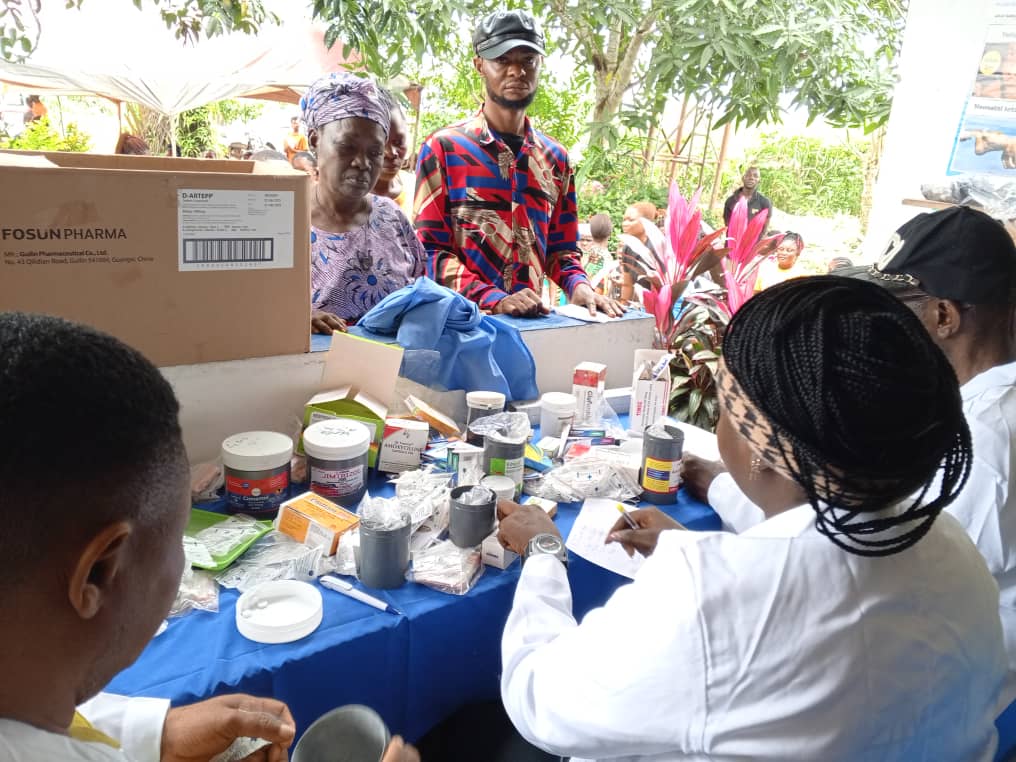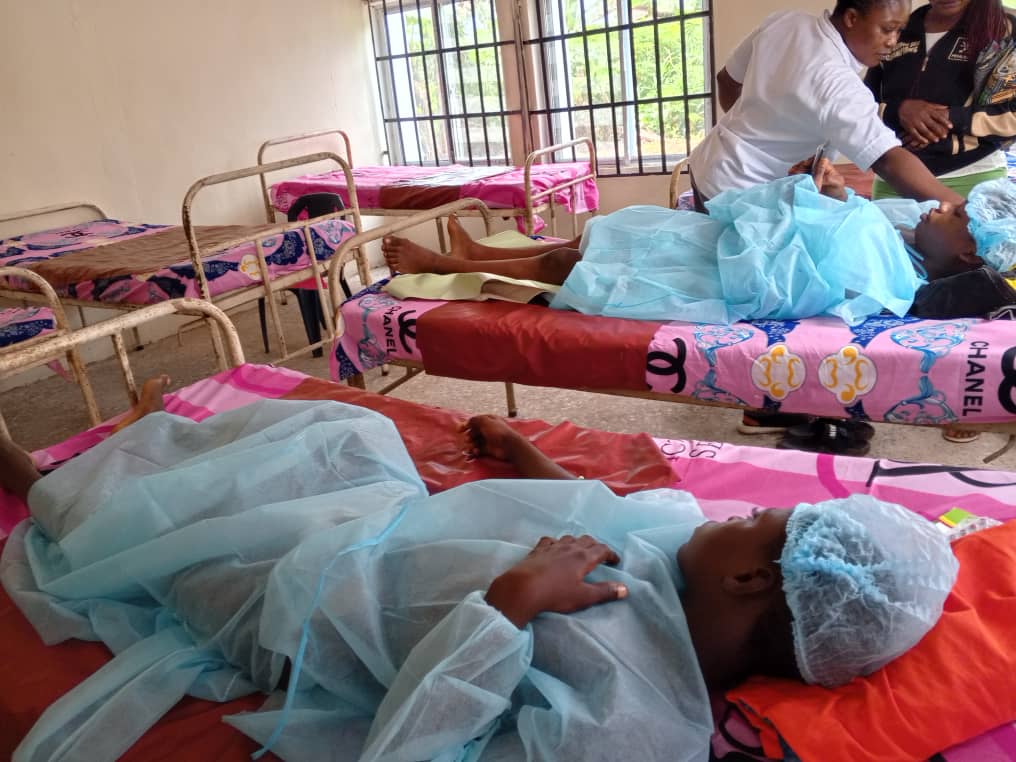By Our Reporter, Calabar
The usually quiet village of Etomi in Etung Local Government Area of Cross River State was filled with excitement recently as hundreds of residents trooped into the newly renovated Primary Health Centre for a free medical outreach.
For many, it was the first time in years they could see a doctor, undergo surgery, or collect prescribed medications without worrying about the cost.
Chief David Amba, the village head, was one of the early beneficiaries. Diagnosed with arthritis, prostate enlargement, and hypertension, he left the centre clutching free medications prescribed by doctors. His relief was evident.
“I am grateful to the state government for remembering us,” he said. “This is a blessing, and I appeal for such interventions to continue.”
The outreach was part of activities marking the second anniversary of Dr. Henry Egbe Ayuk as Commissioner for Health. For him, celebrating two years in office meant giving back to the community and showcasing the reforms of Governor Senator Prince Bassey Otu’s administration.
“This is my community, and it is fitting to begin here,” Dr. Ayuk explained. “We are demonstrating that the governor’s ‘People First’ agenda is not just a slogan.
From Etomi to Bakassi, health facilities are being revived to bring care closer to the people.”
The event was more than just symbolic. By midday, teams of surgeons and nurses had already carried out dozens of minor surgeries — repairing hernias, removing lumps, and treating hydroceles. Others received treatment for malaria, hypertension, peptic ulcers, and chronic back pain, ailments common among peasant farmers in the community.

Findings revealed a total of 295 clients were attended to—72 males, 203 females, and 15 children.
Women accounted for nearly 69 percent of participants, reflecting global trends of higher health-seeking behavior among women.
For Malaria, out of 259 clients screened, 87.8% tested positive, with 53 cases classified as severe or uncomplicated. Diabetes, of 262 screened, 12 new chronic cases were diagnosed (6 males, 6 females), representing a 4.6% prevalence, while ten surgical cases were handled, including hydrocelectomies, herniorrhaphies, lipoma, and cyst excisions.
Dr. Paul Odey, Project Manager of the World Bank-assisted Impact Project, described the outreach as a lifeline.
“Many of these people live with conditions that require medications or surgery, but they simply cannot afford them. What we are doing here is bringing hope,” he said.
The revitalized Etomi Health Centre itself told a story of change. Once abandoned and derelict, it now stands refurbished, stocked with equipment, and staffed by trained personnel. For retired Permanent
Secretary Effiong Ayi, who was present at the outreach, the difference was striking.
“When I was in office, I remember when this facility was first handed over for renovation. Coming back today to see surgeries successfully performed here is deeply satisfying,” he said.
Behind the fanfare lies a broader push by the state government to overhaul healthcare delivery. Over the past two years, nearly 100 primary health centres across Cross River have been upgraded, more than 3,000 health workers deployed, and a state-backed health insurance scheme expanded to cover vulnerable groups.

In Calabar, for instance, the Governor’s wife has sponsored coverage for over 500 elderly people, ensuring they can walk into any health facility and get treated free of charge.
But for the people of Etomi, the outreach was not about policy documents or statistics — it was about immediate relief. In the words of one elderly woman who had her wound cleaned and dressed at no cost, “I can go back home without pain in my leg. That is enough joy for me today.”
The two-day programme concluded with a thanksgiving mass at St. Patrick’s Catholic Church, Etomi, where health workers and community leaders offered prayers of gratitude for successful surgeries and renewed commitment to service.
As the programme wound down, the atmosphere in Etomi was one of gratitude — not just for the free drugs and surgeries, but for the sense of being remembered. For many rural dwellers long cut off from quality healthcare, the outreach was a reminder that even in a small village, government presence could be felt in very real and life-changing ways.




